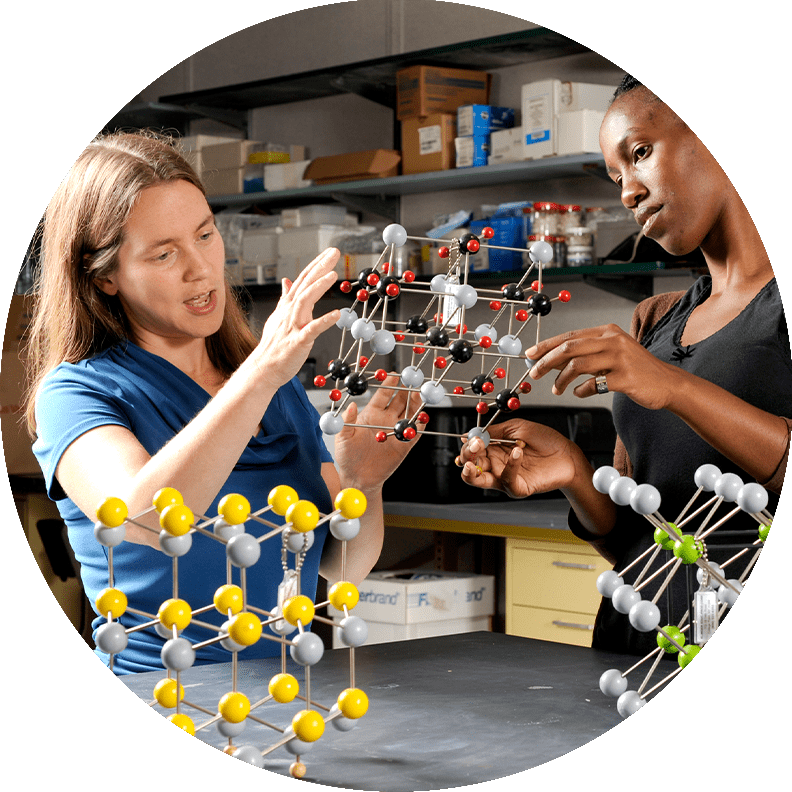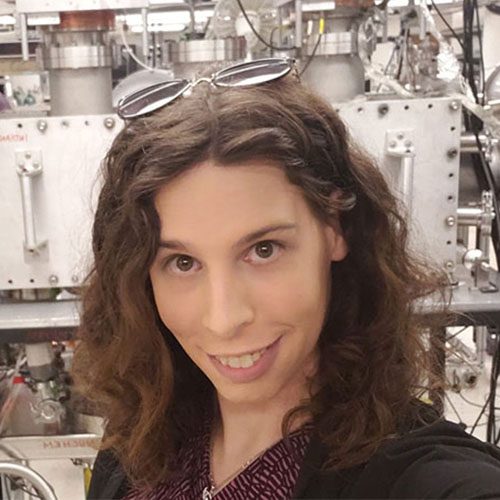Chemistry
As a chemistry student at Earlham, you will engage in a core curriculum shaped by the American Chemical Society’s Committee on Professional Training, providing you with an understanding of matter and energy at the molecular and sub-atomic levels. Chemistry students have the option to graduate with an American Chemical Society certified degree if they complete the path of study outlined below.
The chemistry major encourages undergraduate student research and faculty-student collaboration. It also offers the opportunity to take exciting new chemistry courses, such as forensics and biophysical chemistry.
Start your adventure
Sign up for more information about Earlham College.
Top career fields for recent chemistry graduates are healthcare, education, pharmaceutical industries and more. The chemistry major at Earlham enhances the analytical, critical thinking and writing skills required to succeed in whatever career you choose.
State-of-the-art facilities and collaborative research
Work on laboratory projects alongside our faculty using state-of-the-art instrumentation in a LEED-certified building named after Earlham chemistry alum and Nobel Laureate Wendell Stanley.
Hands-on experiences
Recent majors have done internships at organizations such as Belden, the Richmond Sanitary District, the Environmental Protection Agency and Newfields (formerly known as the Indianapolis Museum of Art).
Student-faculty collaborative research
Our foundation in research has allowed recent graduates to go on to Ph.D. programs at universities such as Harvard, Duke, Purdue, Northwestern, Notre Dame, Tennessee and Utah. Several of them were awarded prestigious National Science Foundation Graduate Research Fellowships.

Our faculty
Earlham’s chemistry professors are scholars who teach. All classes are taught by faculty, not teaching assistants.
Frequently asked questions
Through the chemistry program, you will gain the analytical, critical thinking and writing skills to succeed in whatever career you choose.
A chemistry degree prepares you for a multitude of jobs, including:
- research chemist
- quality control associate
- chemistry laboratory technician
- chemical engineer
- chemistry teacher
- forensic scientist
- geochemist
- hazardous waste chemist
- materials scientist
- pharmacologist
Recent chemistry majors have interned at Loma Linda University Hospital, Stark Neuroscience Research Institute and the Earlham College Joseph Moore Museum, among other places.
If you are known for enjoying lab work, having strong math skills and being good at a variety of science subjects, this program would be a great fit for you. At Earlham, we will encourage you to do research as an undergrad and to collaborate with faculty when possible.


